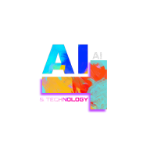Quantum AI: The Intersection of Quantum Computing and Artificial Intelligence
Introduction:
In recent years, artificial intelligence (AI) has transformed a wide range of industries, including healthcare, finance, transportation, and entertainment. AI does have its limitations, though. Traditional AI methods are frequently based on classical computing concepts, which for some types of issues can be computationally expensive and time-consuming.
Contrarily, quantum computing uses concepts from quantum mechanics like superposition and entanglement to carry out calculations and address issues that are beyond the scope of traditional computers. Researchers want to develop more potent algorithms and systems that can take on some of the most difficult challenges in the world by fusing quantum computing and AI.
Quantum AI: What is it?
A growing branch of research called quantum AI combines artificial intelligence and quantum computing to develop more potent algorithms and systems. It uses quantum mechanical concepts like superposition and entanglement to carry out computations and address issues that are beyond the scope of classical computers.
Numerous industries, including finance, healthcare, and transportation, stand to benefit from quantum AI. Quantum AI might be utilized, for instance, to create more precise financial models, enhance drug discovery procedures, and improve city traffic flow.
What's the Process of Quantum AI?
Quantum computers are used to run AI computations in quantum AI. Qubits, quantum bits that can exist in several states simultaneously, are used in quantum computers. Superposition is a characteristic of quantum computers that enables them to run many computations at once, outpacing classical computers in some situations.
Quantum computers make use of entanglement, another aspect of the quantum mechanical system, in addition to superposition. Even if two or more qubits are physically separated, they can become linked by entanglement such that the state of one qubit can be predicted from the state of the other.
In order to do computations that are not feasible on classical computers, quantum AI algorithms are created to take use of these quantum mechanical features. Quantum AI systems, for instance, are capable of solving complex optimization issues like determining the shortest path between two or more sites in a network or streamlining traffic flow in a metropolis.
Quantum AI applications
Numerous industries, including finance, healthcare, and transportation, stand to benefit from quantum AI. The following are some potential uses for quantum AI:
1. Financial Modeling: By carrying out sophisticated computations that are not feasible with conventional computers, quantum AI can be used to create more accurate financial models. This might aid investors in selecting more prudent investments while lowering market risk.
2. Drug Discovery: By simulating molecule behavior and anticipating its interactions with other molecule, quantum AI can be used to enhance drug discovery procedures. This might facilitate the quicker and more affordable development of novel medications by researchers.
3. Traffic Optimization: Quantum AI can analyze real-time data and forecast traffic trends to improve traffic flow in urban areas. This might aid in easing traffic and raising road safety.
4. Machine Learning: By using quantum AI, machine learning algorithms can be made more precise and efficient. In many different applications, this might help AI systems perform better.
Challenges and Restrictions:
Whereas quantum AI has the potential to revolutionize numerous businesses, there are still numerous challenges and impediments that ought to be overcome. Here are a few of the most challenges:
1. Versatility: Quantum computers are still within the early stages of advancement, and current systems are not effective sufficient to perform numerous of the computations required for quantum AI applications. Analysts have to be create more powerful and dependable quantum computers to create quantum AI a viable reality.
2. Clamor and Error Correction: Quantum computers are inherently noisy, which suggests that blunders can crawl into calculations. Typically since qubits are exceptionally delicate and can be effectively aggravated by the environment. To form quantum AI down to earth, analysts got to create error-correction methods that can successfully bargain with these mistakes
3. Algorithm Development: Because the science is still in its early stages, developing quantum AI algorithms is a difficult undertaking. Researchers must create new algorithms and programming languages tailored exclusively for quantum computing.
4. Quantum Computer Access: At the moment, only a few companies have access to quantum computers, and those that do have limited access. This inhibits researchers' capacity to create and test quantum AI algorithms.
In Conclusion, Quantum AI is an exciting subject of study with the potential to transform many industries. Researchers want to construct more powerful algorithms and systems capable of tackling some of the world's most difficult challenges by integrating the concepts of quantum computing with artificial intelligence.
However, numerous hurdles and limits must be solved before quantum AI can become a realistic reality. Researchers must create more powerful and trustworthy quantum computers, error-correction methods, and new quantum-specific algorithms and programming languages.
In spite of these challenges, the potential benefits of quantum AI are as well extraordinary to disregard. As the field continues to create, ready to anticipate to see increasingly applications of quantum AI in numerous distinctive businesses.








0 Comments